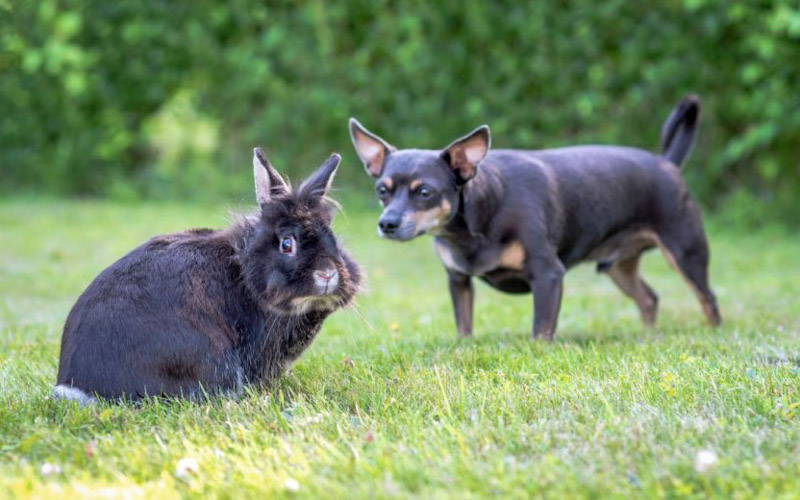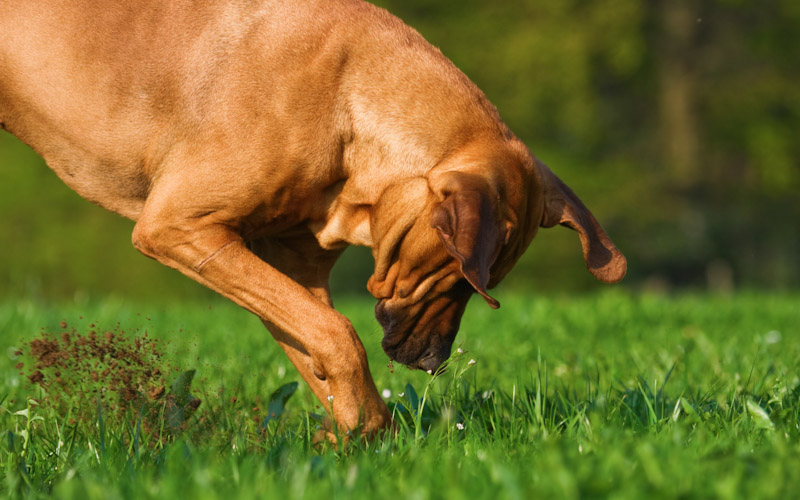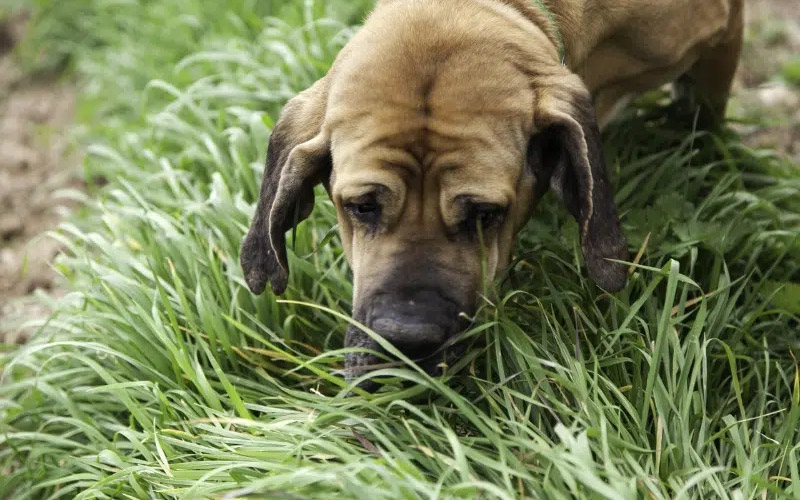If you have ever caught your dog munching on rabbit poop, you might be wondering why they do it and how to stop them. In this article, we will explore the reasons behind this behavior, the potential health risks, and the best ways to deter your dog from eating poop.

Why Do Dogs Eat Poop?
Dogs eating poop, also known as coprophagia, is a common and natural behavior for some dogs. There are several possible reasons why dogs eat poop, such as:
- Nutritional deficiencies: Dogs may eat poop to supplement their diet with nutrients or minerals that they are lacking. This may be due to poor quality food, digestive issues, or parasites.
- Pica: Pica is a condition where dogs eat non-food items, such as rocks, dirt, or poop. Pica may be caused by medical problems, such as anemia, diabetes, or liver disease, or by behavioral issues, such as anxiety, stress, or boredom.
- Boredom: Dogs may eat poop simply because they are bored and looking for something to do. This may happen more often in dogs that are left alone for long periods, have limited exercise, or lack mental stimulation.
- Curiosity: Dogs are naturally curious and may eat poop to explore new smells and tastes. This may be more common in puppies or young dogs that are still learning about the world.
- Instinct: Dogs may eat poop as a result of their ancestral instincts. In the wild, dogs may eat poop to hide their scent from predators, to clean up their territory, or to mimic their mother’s behavior.
Is Rabbit Poop Safe for Dogs?
While eating poop may not harm your dog in most cases, there are some risks associated with eating rabbit poop. Rabbit poop may contain parasites, such as coccidia, giardia, or tapeworms, that can infect your dog and cause diarrhea, vomiting, weight loss, or other symptoms. Rabbit poop may also contain bacteria, such as E. coli or salmonella, that can cause infections in your dog or even in you if you come in contact with your dog’s mouth. Additionally, eating too much rabbit poop may cause your dog to have an upset stomach, gas, or constipation.

How to Stop Your Dog From Eating Rabbit Poop
If you want to stop your dog from eating rabbit poop, you will need to use a combination of management, training, and dietary changes. Here are some tips to help you:
1. Management Techniques
- Keep your dog on a leash during walks in areas with rabbits. This will prevent your dog from accessing the poop and allow you to redirect their attention to something else.
- Pick up rabbit poop promptly from your yard. This will eliminate the source of temptation and keep your yard clean and safe.
- Provide your dog with plenty of toys and enrichment activities to prevent boredom. You can use puzzle toys, chew toys, interactive games, or training sessions to keep your dog mentally and physically stimulated.
2. Training Techniques
- Use positive reinforcement methods like treats and praise to reward your dog for ignoring rabbit poop. You can also use a clicker to mark the desired behavior and increase the likelihood of repetition.
- Implement a “leave it” command to teach your dog to disengage from unwanted items. To do this, you will need to start with something that your dog is mildly interested in, such as a toy or a treat, and place it on the floor. As your dog approaches the item, say “leave it” and cover the item with your hand. As soon as your dog backs away, reward them with a different treat or toy. Repeat this process until your dog learns to leave the item alone when you say the command. Then, gradually increase the difficulty by using more enticing items, such as rabbit poop, and placing them further away from you. Always reward your dog for leaving the item and never punish them for taking it.
- If your dog does eat rabbit poop, do not scold or yell at them. This may only reinforce the behavior by giving them attention or making them think it is a game. Instead, calmly remove the poop from their mouth and redirect them to something else.
3. Dietary Changes
- Consult your veterinarian about adjusting your dog’s diet to ensure they are receiving all the necessary nutrients. You may need to switch to a higher quality food, add supplements, or treat any underlying medical conditions that may cause nutritional deficiencies.
- Consider adding a taste deterrent to your dog’s food, but only with veterinary guidance. Some products, such as For-Bid or pineapple, may make your dog’s poop taste unpleasant and discourage them from eating it. However, these products may not work for all dogs and may have side effects, so always consult your veterinarian before using them.

Additional Tips
Here are some additional tips to help you stop your dog from eating rabbit poop:
- Monitor your dog’s health and behavior regularly. If you notice any signs of illness, such as diarrhea, vomiting, weight loss, or lethargy, take your dog to the vet as soon as possible. They may have contracted a parasite or an infection from eating rabbit poop and may need treatment.
- Keep your dog up to date on their vaccinations and deworming. This will protect them from some of the diseases that can be transmitted by rabbit poop and other sources.
- Clean your dog’s mouth after they eat rabbit poop. You can use a dog toothbrush and toothpaste, a dental wipe, or a water additive to remove any traces of poop and bacteria from your dog’s mouth. This will also prevent them from spreading germs to you or other pets.
- Seek professional help if the behavior persists or you have any concerns. If you have tried all the above methods and your dog still eats rabbit poop, you may need to consult a veterinarian or a dog behaviorist. They may be able to identify and address any underlying issues that may be causing the behavior and provide you with more specific advice and guidance.
Conclusion
Dogs eating rabbit poop is a common and natural behavior that may have various reasons and risks. To stop your dog from eating rabbit poop, you will need to use a combination of management, training, and dietary changes. By following these tips, you can help your dog overcome this behavior and keep them healthy and happy.
